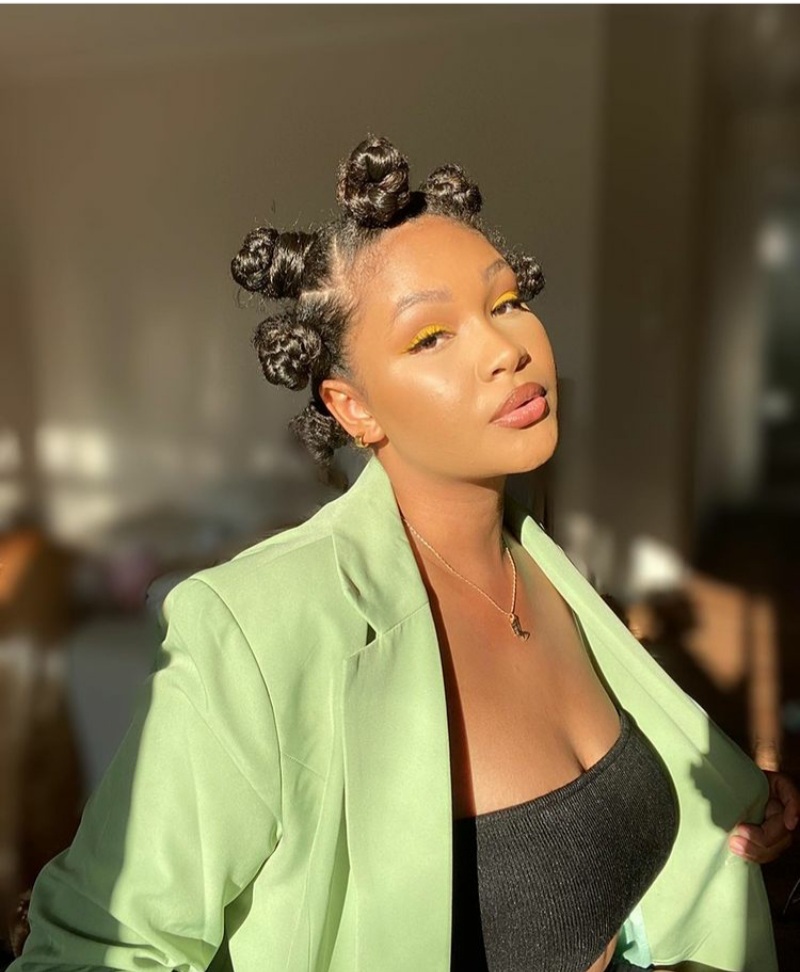
Bantu knots stand as a versatile and trendy protective hairstyle deeply rooted in African culture. These distinctive knots are created by methodically sectioning the hair, twisting each segment, and wrapping it around itself to form a compact knot. This process is repeated across the scalp, resulting in a visually striking pattern of knots that can be worn in various designs and configurations.
One of the standout features of Bantu knots is their adaptability. Whether you choose to craft them solely with your natural hair or incorporate hair extensions for added length and volume, the hairstyle remains uniquely customizable to suit individual preferences. Moreover, Bantu knots offer a heat-free method for achieving beautiful curls. The twisting and wrapping technique naturally encourages the hair to form coils and spirals, eliminating the need for damaging heat styling tools.
After adorning your hair with Bantu knots, you’re presented with a delightful choice: maintain the knots for a bold, sculptural look, or carefully unravel them to unveil a cascade of defined curls. This flexibility adds to the hairstyle’s appeal, allowing you to effortlessly transition between distinct yet equally captivating styles.
However, it’s essential to approach the creation of Bantu knots with care and caution. While they are designed as a protective hairstyle, using rubber bands to secure the knots requires a gentle touch. Overly tight rubber bands can exert excessive tension on the hair, potentially leading to breakage or damage. Therefore, maintaining a balance between securing the knots and ensuring comfort is crucial for preserving the health and integrity of your hair.
In essence, Bantu knots offer a harmonious blend of cultural heritage, style versatility, and hair protection. Whether worn as a bold fashion statement or a practical protective measure, these distinctive knots celebrate the beauty and diversity of natural hair while offering a plethora of styling possibilities.
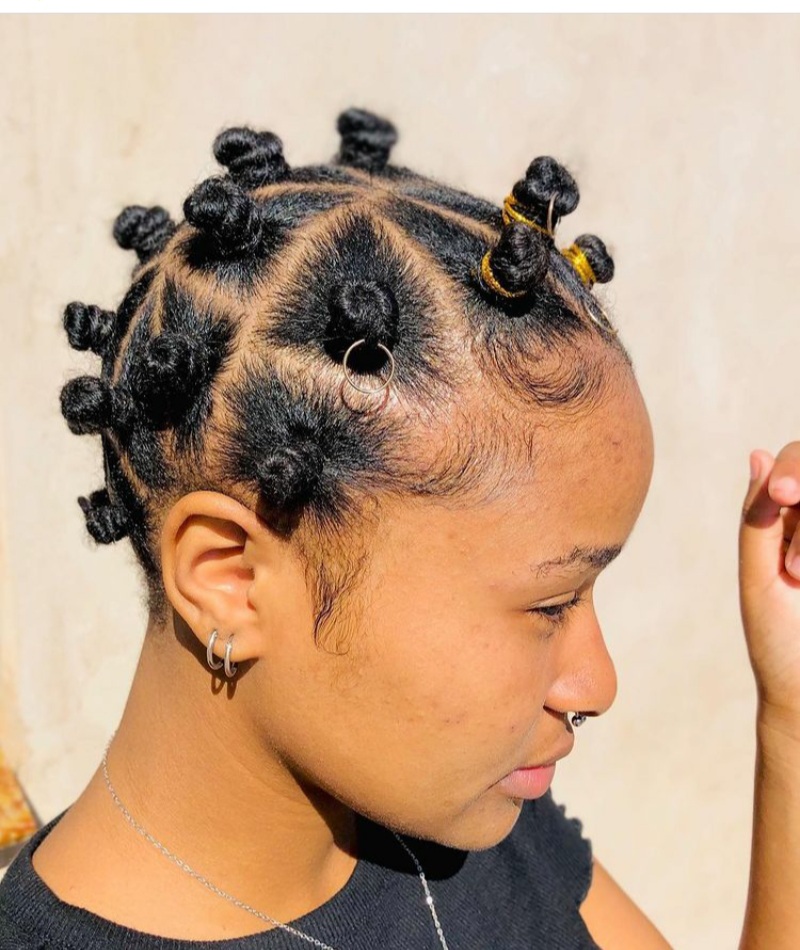
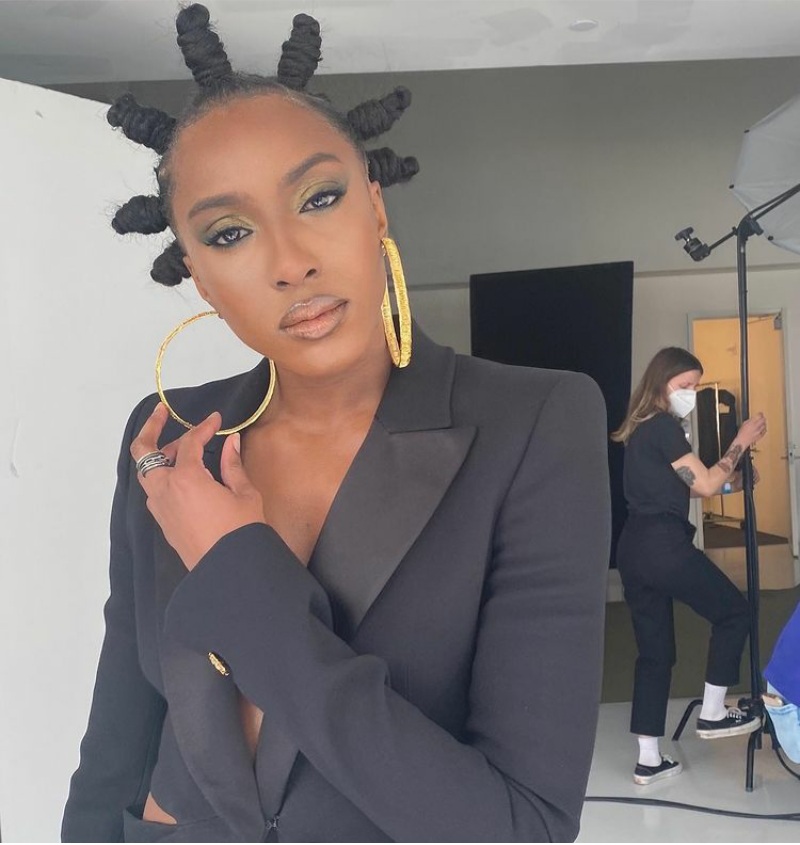
Bantu knots tutorials
What you need
- A rat-tail comb
- Rubber bands
- An edge control brush
- Extra hold gel
- Pre-stretched hair for braiding
- Crotchet needle
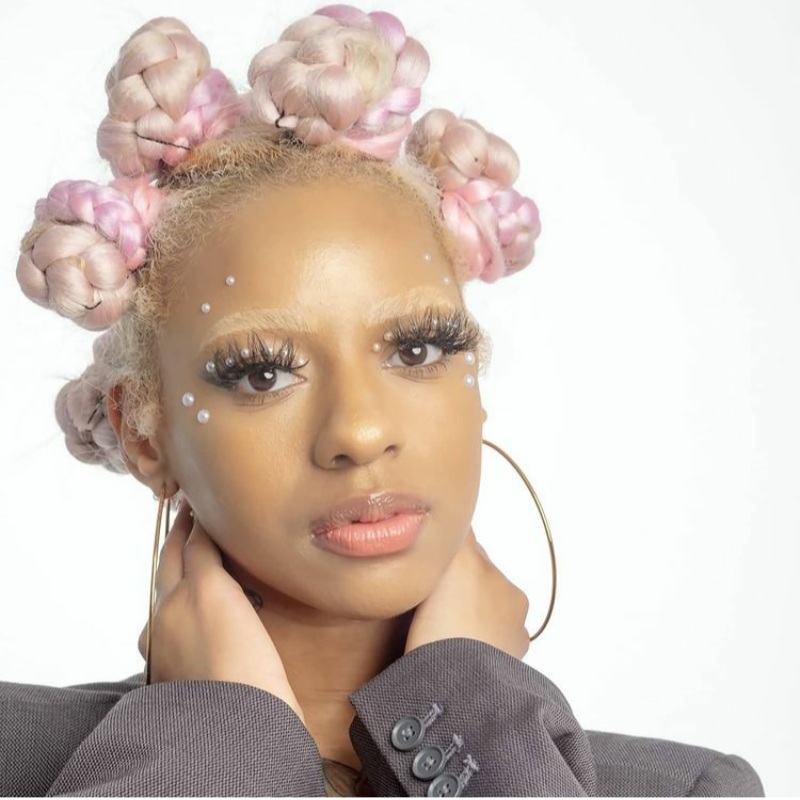
How to do bantu knots
The Bantu knot method is a multi-step process that transforms hair into stylish, curled knots. Here’s a detailed expansion of each step:
1. Preparation:
Wash and Condition: Initiate the process with clean hair by washing it with a gentle shampoo and following up with a moisturizing conditioner to enhance manageability.
Detangle: Thoroughly detangle your hair using a wide-tooth comb or your fingers to ensure a smooth and knot-free canvas for styling.
Damp Hair: Achieve the ideal dampness level for your hair, striking a balance between wet and dry to optimize product absorption and styling results.
2. Sectioning:
Parting: Divide your hair into small, manageable sections using a comb. Smaller sections make the styling process more precise.
Gel Application: Apply an extra-hold gel to the roots of each section. The gel provides hold and helps combat frizz.
3. Avoid Heavy Products:
- Flyaway Control: Utilize a bristle brush to comb down any flyaways, ensuring a polished look.
- Avoid Heavy Creams, Oils, or Butters: Steer clear of heavy styling products that may lead to breakage. Opt for lightweight products for a more secure hold.
4. Twisting or Braiding:
Technique Choice: Choose between twisting or braiding each section based on personal preference. Both techniques contribute to the knot formation.
Extension Addition: Incorporate pre-stretched hair extensions for added length or volume. Introduce colored extensions for a personalized touch.
Bantu Knot Formation:
Twisting and Wrapping: Begin the Bantu knot formation by twisting and tightly wrapping the hair over itself. Simultaneously twisting and wrapping can expedite the process.
Coiling: Continue coiling the hair until it reaches the end of the section, creating a compact, bun-like structure.
Secure End: Tuck the end of the bun inside itself and secure it in place with a rubber band. Alternatively, use a crochet needle to loop the hair and secure it without a rubber band if the knots are tight.
Optional Overnight Set:
Curling Purpose: If the goal is to curl the hair, leave the Bantu knots in overnight. The extended duration allows the hair to set and adapt to the new structure.
Bantu Knot-Outs: In the morning, unravel the braids or twists to reveal beautifully defined curls. This technique is known as Bantu knot-outs.
If desired, you can keep the Bantu knots in for an extended period before unraveling them, showcasing the unique style.
By following these detailed steps, the Bantu knot method transforms the hair into an elegant and versatile hairstyle, allowing for creative expression and curl enhancement without the need for heat styling.
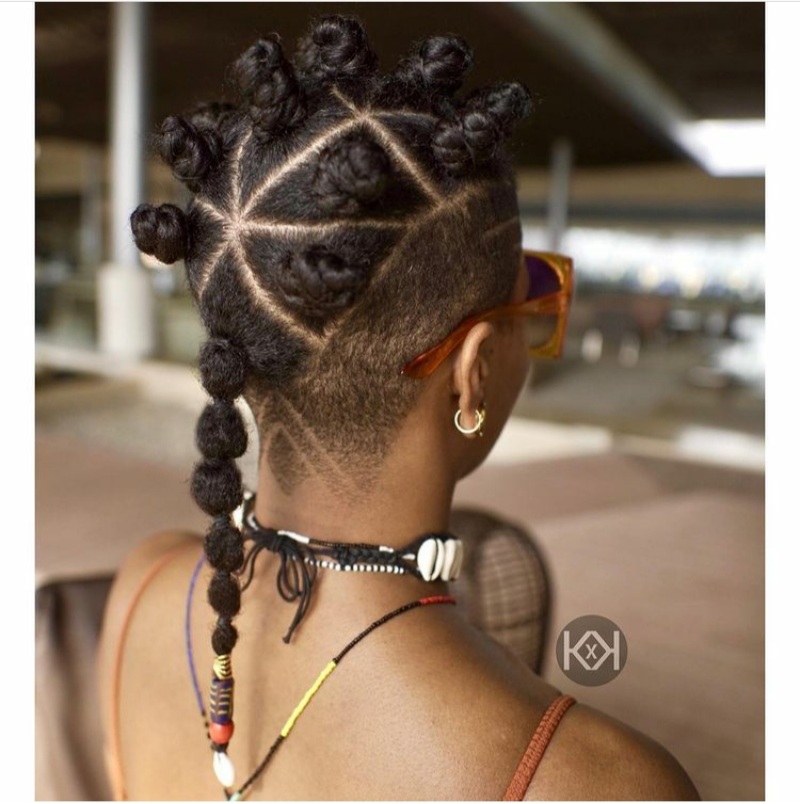
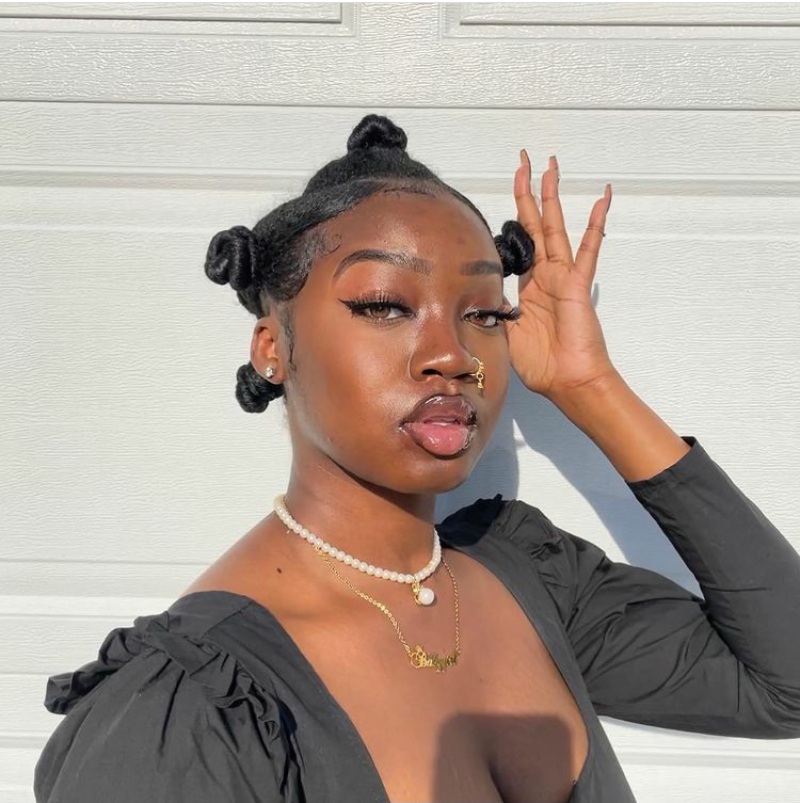
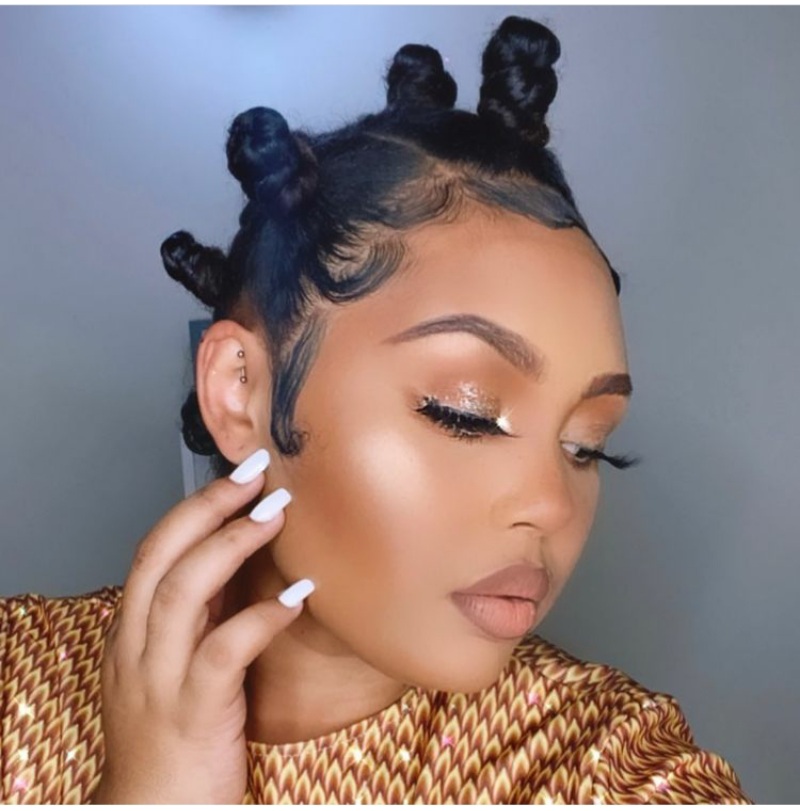
If you’ve previously braided your hair or have locs, you’re already a step ahead! You can directly move on to wrapping your hair over itself to create the signature Bantu knots. For those who prefer smaller knots, using just your natural hair is sufficient. However, if you desire larger, more voluminous knots, incorporating hair extensions can elevate the look and provide that extra fullness.
It’s essential to understand that Bantu knots aren’t exclusively for afro-textured hair. Even if you’ve chemically treated or permed your hair, you can still achieve beautiful Bantu knots.
The flexibility of this hairstyle makes it versatile and inclusive, allowing individuals with various hair textures and styles to embrace and enjoy the unique beauty of Bantu knots. Whether you’re maintaining your natural curls, rocking locs, or experimenting with permed strands, Bantu knots offer a stylish and creative way to showcase your hair’s versatility and beauty.
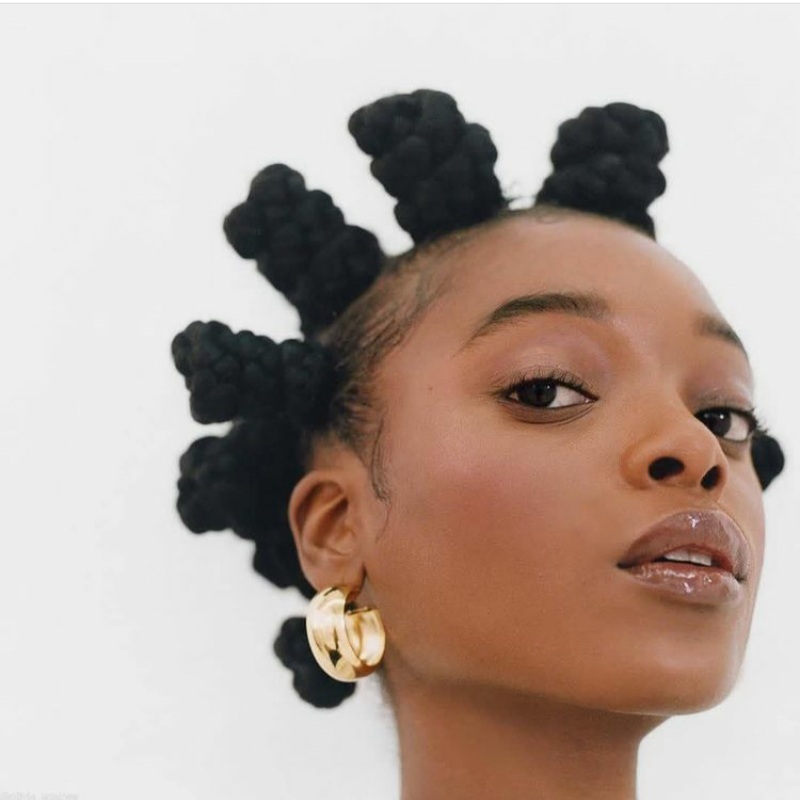
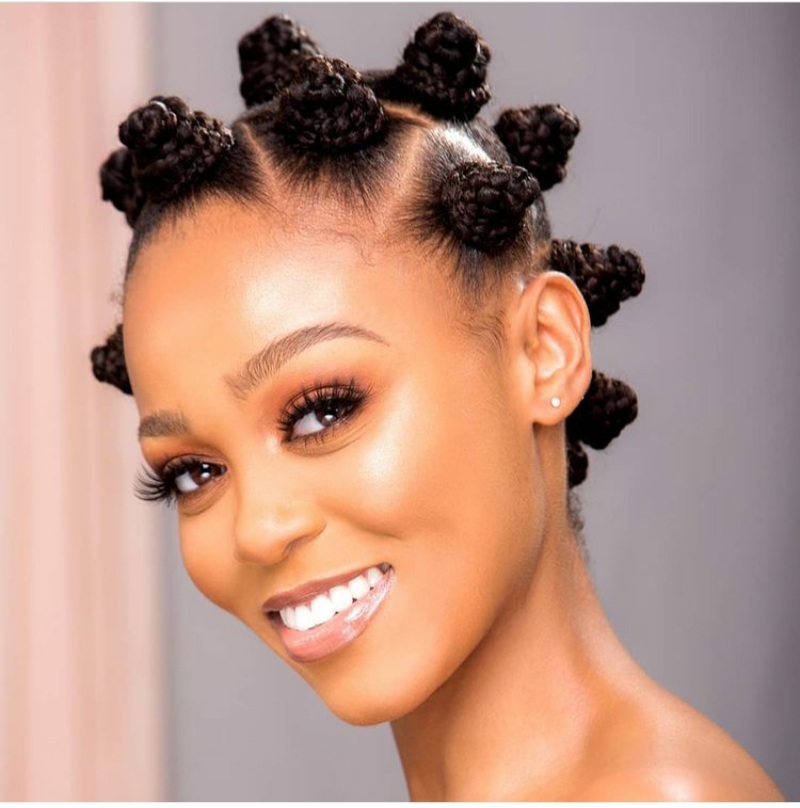
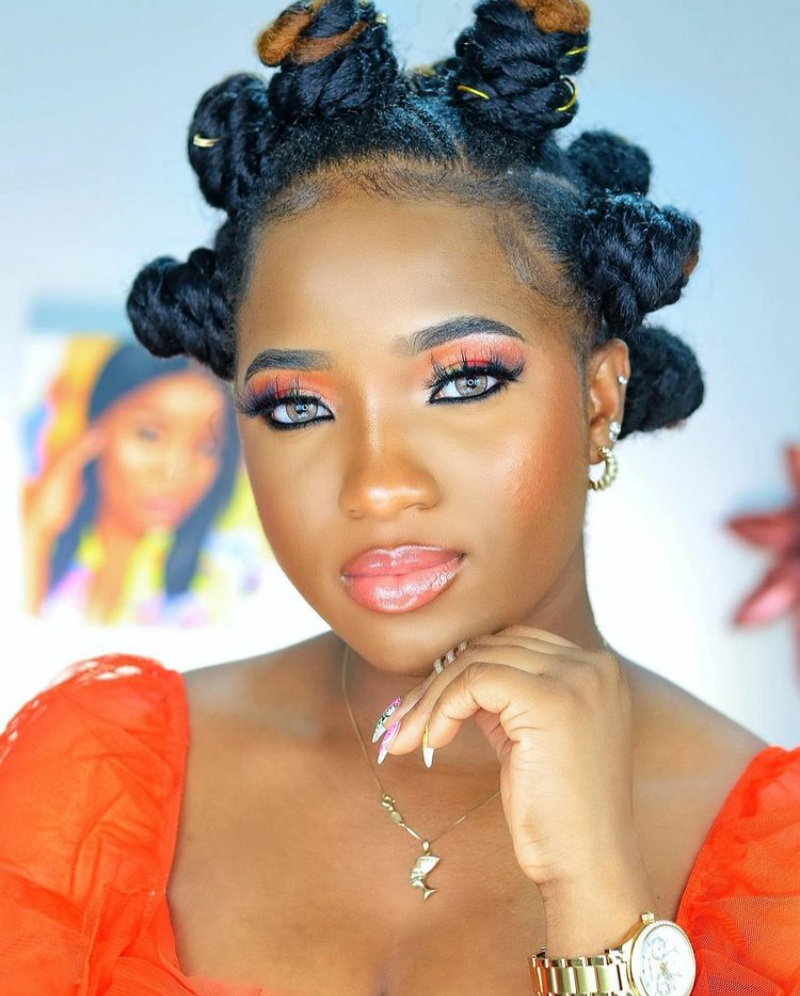
Why not try the Bantu knot hairstyle if you’re seeking a protective style that will keep your hair healthy and manageable? Bantu knots are only one of many methods that will protect afro-textured hair. You can experiment with weaves, box braids, and sew-in styles, but bantu knots are a particularly interesting look that will make you pleased.
